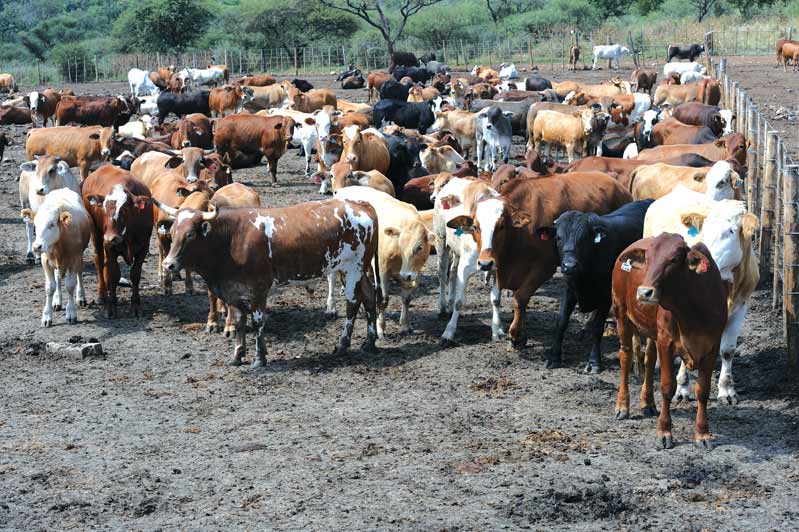Despite its importance, corporate governance has been largely overlooked in the land reform programme. This is because compliance with good corporate governance principles is generally associated with listed companies. However, it plays a crucial role in attracting investors and enabling land reform beneficiaries to manage their land as profitable entities.
The anecdotes of the failure of the land reform programme clearly point to the need for post-settlement support for beneficiaries of the programme, which among them includes the application of good governance practices. Until now, when the claim to the land has been finalised and the government steps in to purchase it from its current owner, the land is simply handed over to the claimant community, which often lacks the financial resources to productively work it and access markets.
The post-settlement support for land reform beneficiaries is necessary for them to begin using land productively and operating on par with commercial operators.
Given limited government resources to support land reform beneficiaries, increasing collaboration between private investors and commercial farmers will go a long way towards ensuring productive use of land. Commercial farmers and private investors, however, want to partner with entities that have a sound governance system that can prove their sustainability.
There is still a lot of work to be done to strengthen governance practices among communal property associations. This will help to amongst others, resolve common infightings among beneficiary communities, and empower them to contribute towards a more sustainable land reform programme. Government and the private sector can do more by supporting organisations that are providing organisational development and other forms of support to CPAs.
Sound corporate governance has become increasingly critical following widely reported scandals in South Africa and abroad that wiped out billions of dollars in shareholder value. The eroded public trust in corporates led to the development of a set of principles and rules by which companies, public entities and businesses are expected to abide by. In South Africa, successive King Codes on Corporate Governance were developed in an attempt to regulate company operations, restore public trust, and assure investors that their operations were ethical and transparent.
Investors make calculated investment decisions before investing. Investments need to be backed by a sense of confidence that they will yield a return. To that end, they are likely to invest in land reform programmes where there is a framework that outlines how the land will managed for the benefit of all beneficiaries. For example, Communal Property Associations (CPAs) that can provide regular financial statements, and guidelines stipulating how profits will be divided, how CPA members are elected, and other policies and procedures detailing how they will run their affairs stand a good chance of attracting investors than those that don’t have these in place.
If land reform beneficiaries are to attract investors who can help them drive the productive use of their land, they must prioritise sound governance practices. This will ultimately enable them to create jobs and contribute to the country’s social and economic development.
According to the Communal Property Associations (CPA) Act 28 of 1996, CPAs are required to hold annual general meetings and submit basic information to the Department of Rural Development and Land Reform (DRDLR). The information required includes the names of committee members, minutes of Annual General Meetings, a schedule of dealings in land, and financial statements.
However, the majority of CPAs are unable to comply with these basic requirements. Some of the main challenges reported among CPAs include issues around:
- the election of new committee members, which is often obfuscated by the previous committees whose term of office has expired
- committee members often using the resources of the CPAs for their personal benefit
- committee members not keeping proper records of CPA finances and minutes of meetings where major decisions are taken regarding the assets of the CPAs
- unaccountability of the CPA executive committee, prevalent where the CPA is used both as a landholding and a business entity
- provincial officials who facilitated the establishment of CPAs are expected to continue supporting CPAs.
It remains a major challenge for beneficiaries of the land reform programme to comply with these basic requirements for good governance. This presents a greater challenge to productivity of restituted land – as such, farms cannot be financed by private investors. In turn, this means beneficiary communities cannot market their produce, supply local and regional markets, or export their produce, which results in their being unable to create jobs or contribute to the social and economic development of the country.
The King Code on Corporate Governance is a useful tool that can also be used to support land reform beneficiaries in implementing good governance practices. This can be adapted to suit the requirements of CPAs.
Though adherence to the King principles is now standard and mandatory for listed companies, there is growing evidence that non-profit organisations, private companies and entities in the public sector have experienced challenges in interpreting and adapting King III to their particular circumstances. Land reform beneficiaries may not have the necessary resources to fully adapt and implement King Code on corporate governance principles in their operations. But these principles may serve as a valuable guideline to CPAs on the checks and balances that are required to improve transparency and enhance their operations.
In the face of steadily dwindling budgetary allocations to support land reform, there is a need for support to enable land reform beneficiaries to up the ante and professionalise the running of their land enterprises in order to attract much-needed private sector investment. The public and private sector entities can contribute significantly to these efforts as well, because it is in the broader interest of both the public and private sectors to see land reform succeed in South Africa.
In our experience, we have found that CPAs that have been successful in attracting private investors are the ones who follow good governance practices.
If we are to address the productive use of land, we must support CPAs in implementing these seemingly small yet vital governance practices.
Peter Setou is the Chief Executive of the Vumelana Advisory Fund, a non-profit organisation that works with land reform beneficiaries to make their land productive by facilitating partnerships between communities and investors who have amongst others, access to capital and markets.








